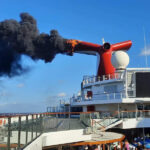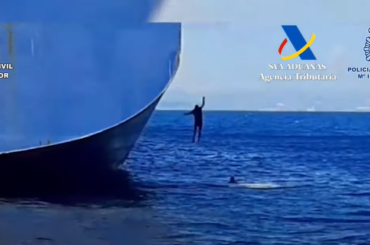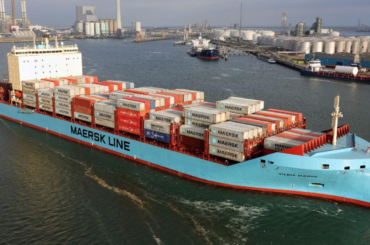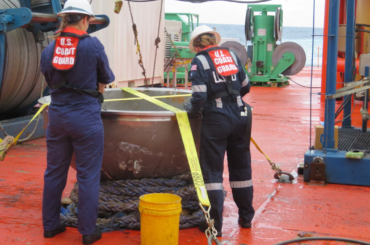Following the incident, USS Connecticut returned to Guam for damage assessments. Although the propulsion plant of the USS Connecticut was not impacted, the submarine is expected to be unavailable for operations “for an extended period of time” due to the damage sustained in the incident.
The incident also resulted in minor injuries sustained by eleven crew members.
According to the heavily redacted report, the grounding “resulted from an accumulation of errors and omissions in navigation planning, watch team execution, and risk management that fell far below U.S. Navy standards.”
“Prudent decision-making and adherence to required procedures in any of these three areas could have prevented the grounding,” the report adds.
The USS Connecticut returned to Guam after the incident to examine the damage. Despite the fact that the USS Connecticut’s propulsion plant was not damaged, the submarine is expected to be unavailable for operations “for an extended period of time” as a result of the damage.
Eleven crew members also suffered minor injuries as a result of the incident.
According to the extensively redacted study, the grounding “resulted from an accumulation of errors and omissions in navigation planning, watch team execution, and risk management that fell far below U.S. Navy standards,” according to the extensively redacted study.
“Prudent decision-making and adherence to required procedures in any of these three areas could have prevented the grounding,” the report adds.
The investigation also identified specific areas for improvement in the deployment training and certification process, which the Navy is working to apply across the Submarine Force as quickly as possible. The study also contains 28 corrective actions, 14 of which are complete, 13 of which are in the works, and one of which is ongoing.
Commander of the U.S. 7th Fleet, Rear Adm. Christopher J. Cavanaugh, also recommends that the Commanding Officer (CO), Executive Officer (XO), Navigator (NAV), Officer of the Deck (OOD), and Assistant Navigator (ANAV) be subjected to “nonjudicial punishment” for violations of “Dereliction of Duty” and “Improper Hazarding of a Vessel” for negligence, and that the administrative chain of command initiate detachment for the cause.
“In implementing these significant improvements, the Navy will become a more effective fighting force. Given the inherently dangerous nature of Naval operations, we cannot become a risk-averse or zero-defect organization, but prioritizing safety will engender a culture of greater attention to detail in operational tasks, enhanced procedural compliance, and a questioning attitude that constantly seeks improvement – which increases the readiness of our forces and the Navy’s lethality in combat,” the Navy said in a statement.
The report can be found here







